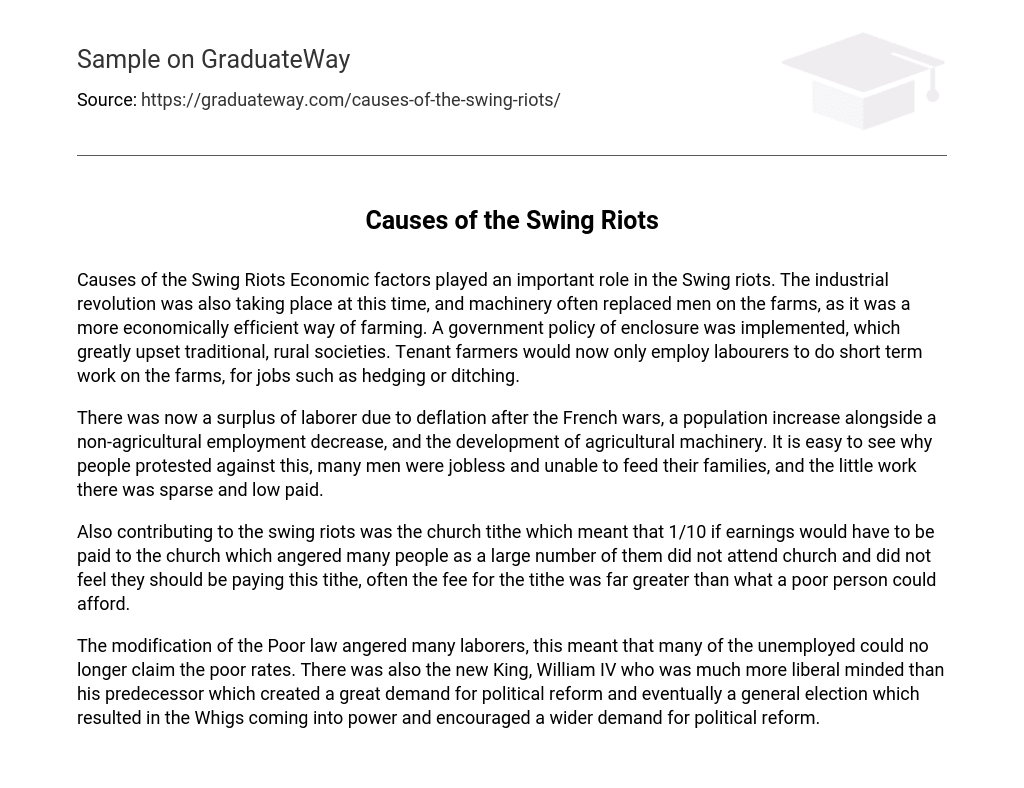Causes of the Swing Riots Economic factors played an important role in the Swing riots. The industrial revolution was also taking place at this time, and machinery often replaced men on the farms, as it was a more economically efficient way of farming. A government policy of enclosure was implemented, which greatly upset traditional, rural societies. Tenant farmers would now only employ labourers to do short term work on the farms, for jobs such as hedging or ditching.
There was now a surplus of laborer due to deflation after the French wars, a population increase alongside a non-agricultural employment decrease, and the development of agricultural machinery. It is easy to see why people protested against this, many men were jobless and unable to feed their families, and the little work there was sparse and low paid.
Also contributing to the swing riots was the church tithe which meant that 1/10 if earnings would have to be paid to the church which angered many people as a large number of them did not attend church and did not feel they should be paying this tithe, often the fee for the tithe was far greater than what a poor person could afford.
The modification of the Poor law angered many laborers, this meant that many of the unemployed could no longer claim the poor rates. There was also the new King, William IV who was much more liberal minded than his predecessor which created a great demand for political reform and eventually a general election which resulted in the Whigs coming into power and encouraged a wider demand for political reform.





